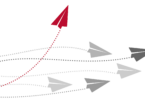ATHENS, Ga. – They’ll be knuckle-walking and twirling and foraging for food. It’s a jungle out there – at least, it will be for a group of Barrow County youngsters participating in the Virtual Gorilla (VGOR) Summer Camp July 21-25.
More than a dozen middle school-aged children from the Winder Boys & Girls Club and Winder-Barrow Middle School will get a rare opportunity to experience first-hand what it is like to design a “gorilla” through a virtual reality program run by University of Georgia education researchers at the camp to be held at the middle school.
“The Virtual Gorilla Modeling program will allow the 5th-7th grade campers to construct models of a gorilla troop,” said Ken Hay, director of the project and a research scientist in the Learning and Performance Support Lab of UGA’s College of Education.
The Virtual Gorilla Modeling project (VGOR) allows the learners to observe gorillas, develop biomechanical models of gorilla movement and ultimately, an interactional model. This inquiry-based approach helps learners develop a deeper understanding of animal behavior that goes beyond a traditional descriptive or observational level and into the individual interactions with the world, and intragroup interactions.
Learners then test their models by putting them into a virtual 3-D habitat. The project combines the use of modeling tools and video-streaming experiences with on-site observations and 3D experiences to transform the descriptive nature of animal behavior education into new education where learners are developing their own 3D animal behavior models of gorillas.
“The program focuses on gorilla motion – form and function, and on gorilla troop interactions. Students will learn how scientists study real gorilla behavior and how scientists create models,” said Hay. “By creating models, students must focus in a very detailed way on how gorillas move and interact. The models are runnable, so they can see if their ideas really work and if they don’t – what their limitations might be.”
VGOR is part of a larger research project called “Apprenticeship in Cyberspace,” which is funded by a $1.07 million National Science Foundation grant directed by Hay. Lynn Bryan and Norm Thomson, both associate professors in science education at UGA are assisting. Several middle school science teachers from Barrow and Gwinnett counties and a sister school in Selma, Ala., are participating in the program. The teachers are attending a one-week interactive professional development course prior to the student camp to learn how to use the VGOR software and other advanced learning technologies developed at the LPSL.
The teachers apprentice for a week with UGA researchers by working with two to three students on the VGOR program and curriculum. This provides the teachers with invaluable practice on how real students interact and learn with new educational technologies. Armed with these experiences, teachers can modify and customize the new educational programs to meet their own classroom needs.
“We no longer develop new learning technologies and ‘throw them over the school fence.’ Our approach is to introduce teachers to the science, pedagogy and technology, then give them an apprenticeship experience in how we envision it working in a classroom context. Then we support them as they take the core ideas and customize them to meet local needs and curriculum,” said Hay.
Instead of going into the virtual space to learn from someone else’s gorilla model, learners will go into virtual space to test their own gorilla models. The construction and testing of their models is where we believe the greatest learning is possible,” said Hay.
Hay’s career has included research and development in a diverse range of advanced applications of technology to learning. His earlier work included robotics for severely physically disabled students to enable them to conduct science experiments, real-time weather map and movie Internet service, BlueSkies, and student composition of multimedia documents.
For more information, visit http://lpsl.coe.uga.edu/live/vgor/.
##







